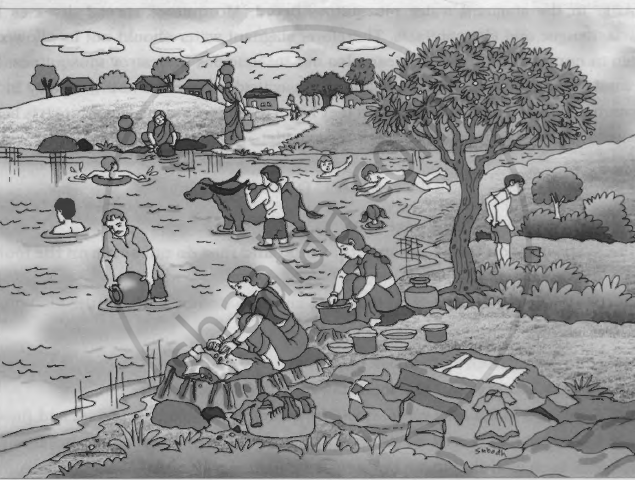Advertisements
Advertisements
प्रश्न
How vaccination helps to prevent diseases?
उत्तर
A vaccine contains a killed or weakened disease causing microbe that is responsible for infection. Because the germ is killed, it cannot make the person sick. When a person receives a vaccine, the body reacts by producing antibodies in defence. The antibodies remain in the blood for long and destroys the germs of a particular disease. In other words, vaccines expose people safely to germs so that they can fight with the same germs in future against its specific disease.
APPEARS IN
संबंधित प्रश्न
Put a tick mark (✓) against the correct alternative in the following statement:
Infectious diseases can be prevented by:
When your friends fall while playing and get hurt, does anyone tell you, ‘Don’t go near them, you will also get hurt’?

What different activities are going on in the above picture?
What steps will you take to ensure that dust and flies do not settle on the food in your house?
Which method of preventing the breeding of mosquitoes will you recommend for your surroundings - not allowing water to stagnate or spraying insecticides on the water? Why?
Give reasons.
When there is an epidemic of cholera, we should drink boiled water.
Write about any three communicable diseases in detail.
How the diseases are transmitted from one person to the other person?
Distinguish communicable diseases and non-communicable diseases.
How the diseases are transmitted from one person to the other person?
